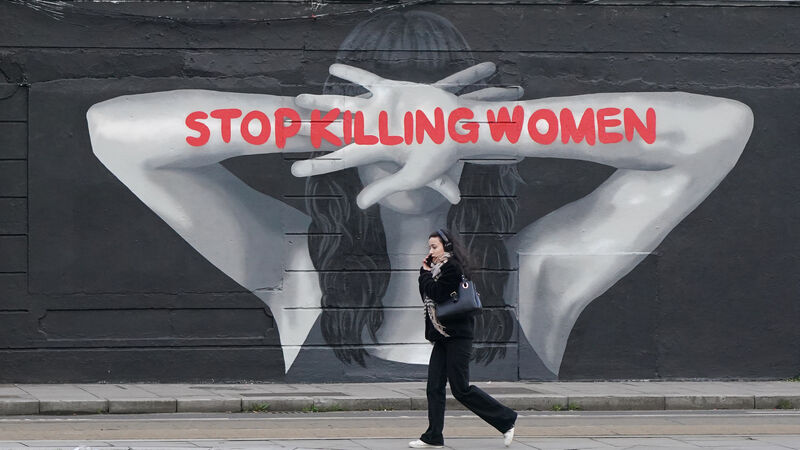Joyce Fegan: Our acceptance of misogyny five years on from #MeToo

A woman walks past a mural painted for Women's Aid by the artist Emmalene Blake in Dublin.
In the writing of this column, there are legal landmines everywhere, court cases pending, investigations ongoing.
Simultaneously, there are also women everywhere trying to rear children in the midst of domestic abuse, women who have already died as a result of male violence, and women and girls who are being trafficked and abused for someone else’s financial gain.
Already a subscriber? Sign in
You have reached your article limit.
Subscribe to access all of the Irish Examiner.
Annual €130 €80
Best value
Monthly €12€6 / month
Introductory offers for new customers. Annual billed once for first year. Renews at €130. Monthly initial discount (first 3 months) billed monthly, then €12 a month. Ts&Cs apply.
CONNECT WITH US TODAY
Be the first to know the latest news and updates















